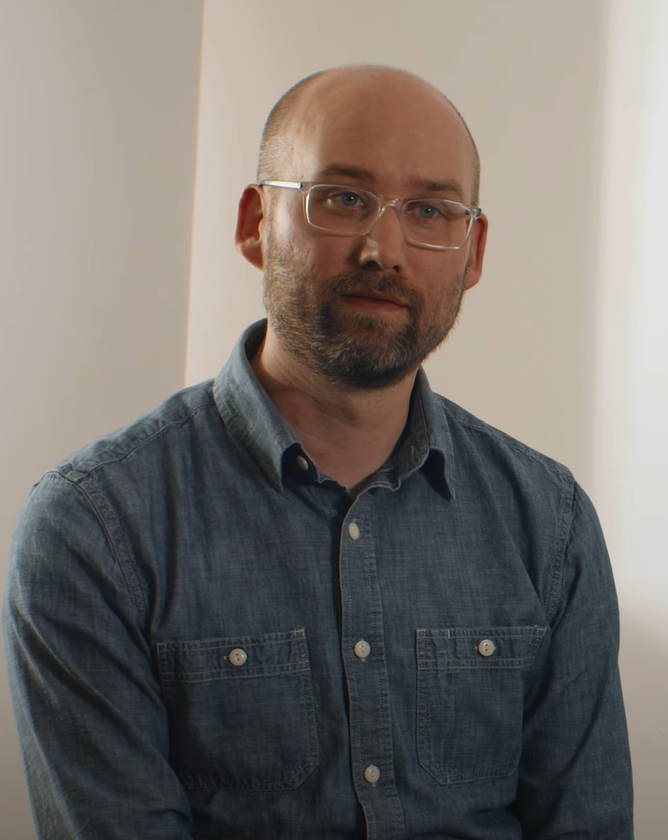Phillip B
Graphic Design & English (‘11)
“For me, it was really helpful to have other people to talk to. I also had a bunch of spaces at BYU that were kind of like my sacred spaces. A corner of the library, part of the art museum, (...) those were places that I could kind of take a breath or escape a little bit.”
How did being queer at BYU affect your health?
I sought counseling pretty early I think my freshman year. I never felt like I was dealing with some specific diagnosable mental health issue. With a little more awareness and looking back on it now, I can see the effects of some depression and some anxiety.
I think perhaps I’m susceptible to that, but I also just think you get some depression when you feel so alone and sort of separate from yourself. And you get some anxiety when you’re worried that the way you walk or talk might betray you or that an environment that you’re in is not safe.
I saw a counselor through a lot of my time at BYU. There were times that were difficult and I think they felt uniquely difficult because I couldn’t always share them. Sometimes I would go to talk to a bishop and they wouldn’t handle it well.
But I remember a lot of dissonance, a lot of splitting or division. These two cells, this real divided nature. I often was thinking about my experience being akin to sitting on the fence. I wanted to go one way or the other, but I was too nervous to go in one direction or the other, and so I just felt really split. And I think that just wore down on my mental well-being.
What are some real takeaways from your time at BYU?
I think I just wanted to reflect on how, again, it was a positive and negative experience at the same time, and that you can have both of those.
And I think that for me, some of my saving grace was finding these sort of liberal pockets. I was a graphic design major, so being in the art department. It was different than being on some of the other parts of campus. There were some teachers that were a little more liberal and understanding.
Same goes for the therapists, you know. I’m sure there are some who are not great, but I guess I just feel like BYU is not one thing. There are individual students, there are teachers who have more compassion for queer experience and have more understanding. There are other queer students, so there is a mix and there is a blend. I found some of that. I’m sure there’s even more of that now. You’ve got to find those places to be, people who you can feel safe around, opportunities to be yourself. And those do exist.
I don’t think it’s all just one church culture, or that everybody’s so Mormon, and everyone will judge you. I think there’s a real spectrum of possibility, and I think that’s a positive thing.
Answers to the questions are transcribed from Phillip’s video interview. The transcription does not cover the entire video.
Posted on July 12, 2023

